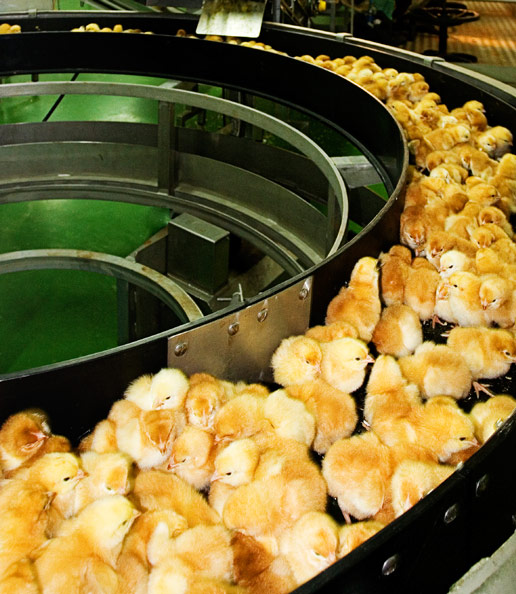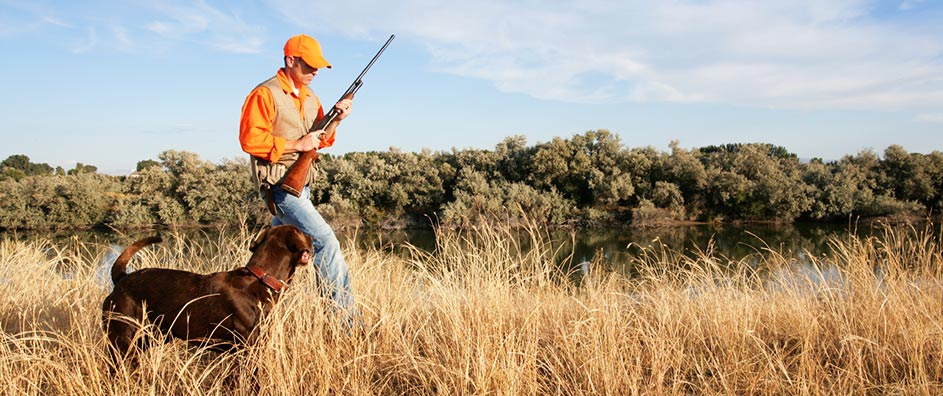The views expressed in our content reflect individual perspectives and do not represent the authoritative views of the Baha'i Faith.
As summer wanes here in Wyoming, archery hunters take to the fields and mountains. Most of us who hunt with firearms must wait until October, but we’re preparing nonetheless. I’ve been going over my checklist of gear and supplies; I think everything is ready.
There’s also preparation of body and mind. Hunting can be physically and mentally demanding. It requires walking long distances through all kinds of weather across all sorts of terrain, and the discipline to stay focused for hours. You might have to creep low to the ground or crawl over considerable distances. You will need calm control to place your shot precisely if and when the moment comes. Then, you face the arduous task of processing an animal and hauling a heavy meat pack back to your vehicle.
Age takes its inevitable toll, but my father remained sharp and spry enough to hunt elk in the backcountry with a traditional flintlock rifle well into his 70s, so I’m hopeful many of my best hunting seasons are still ahead of me.
Besides preparing our gear and ourselves, I think hunters of religious faith should consider deeper implications. For believers, there’s no avoiding the hoped-for end of our quest is killing one of God’s creatures. Bearing that in mind, what might be the spiritual implications of hunting?
The holy writings of the Baha’i Faith stress kindness to animals. Abdu’l-Baha wrote:
Briefly, it is not only their fellow human beings that the beloved of God must treat with mercy and compassion, rather must they show forth the utmost loving-kindness to every living creature. – Abdu’l-Baha, Selections from the Writings of Abdu’l-Baha, p. 158.
I’ve heard Christians and Muslims speak of similar lessons in their Faiths, and I’m sure we could find such teachings in the world’s other great religions. The spiritual traditions of aboriginal people — such as the Paleo-Indians and Native Americans who hunted these lands long before my ancestors arrived — reflect awe and respect for animals. And from what I can gather, the old Celtic and Germanic hunters of my ethnic heritage revered the animals they pursued.
Considering many sources giving similar messages, I’m forced to conclude that respect for and kindness toward animals is spiritually important. Which raises the question — does hunting run counter to that?
As with many of this life’s paradoxes, I think the answer is, “that depends.” I think it rests on the hunter’s motivation, methods and state of mind. It can hinge on what hunters glean from their religion or spiritual paths. The Baha’i writings say little about hunting specifically, beyond advising us to faithfully obey the hunting laws and regulations of our homelands and “hunt not to excess.”
What “to excess” means, the Baha’i teachings leave open to individual interpretation. My personal view is that I shouldn’t take more than I need to feed my family and a few friends, and that I should avoid the sort of hunting that might threaten wildlife conservation. These two quotes from the Baha’i writings illustrate the balance I try to find in my own hunting:
When mankind is more fully developed, the eating of meat will gradually cease. – Abdu’l-Baha, The Promulgation of Universal Peace, p. 171.
…eating meat is not forbidden or unlawful, nay, the point is this, that it is possible for man to live without eating meat and will be strong. Meat is nourishing and containeth the elements of herbs, seeds and fruits; therefore sometimes it is essential for the sick and for the rehabilitation of health. There is no objection in the Law of God to the eating of meat if it is required. – from a tablet of Abdu’l-Baha to an individual Baha’i.
Of course, that leaves the obvious objection — how can killing be kindness? Again, I think the answer might be, “that depends.”
When one considers the typical lot of wild animals, and how cruelly nature often ends their lives, being killed quickly by a well-placed bullet or arrow doesn’t seem particularly unkind in the greater scheme of things. Also, the basic order of nature finds no wrong in one entity killing another for food—that, in fact, is the fundamental law of nature.
Most of the species humans pursue have been hunted for the entirety of their biological existence. In other words, it’s not unnatural for them to play the role of prey, and to provide sustenance to humans. That said, the consumption of meat, which in any form requires killing animals, raises ethical challenges for any thoughtful soul:
Truly, the killing of animals and the eating of their meat is somewhat contrary to pity and compassion, and if one can content oneself with cereals, fruit, oil and nuts, such as pistachios, almonds and so on, it would undoubtedly be better and more pleasing. – From a tablet of Abdu’l-Baha written to an individual Baha’i.
While the Baha’i Faith has no specific dietary restrictions, and does allow for hunting, it also clearly calls us to challenge common assumptions about our diets and how we treat animals. However, I don’t think oversimplification should cloud the matter. Going into the field and hunting a free and wild animal that has a reasonable chance of escape is one thing. Condemning livestock animals to a miserable life in “CAFOs” (confined animal feeding operations) is quite another. Many people, including some hunters, find the latter practice not only cruel to animals, but also threatening to the environment. And the effects on human health associated with eating meat from animals raised under such conditions speak for themselves.
 I’ve noticed a growing backlash against what’s commonly called “factory farming,” and people are becoming increasingly mindful of what they eat and where it comes from. I think that’s wonderful, and I have no quarrel with people who have adopted vegetarian or vegan diets as a result. There’s also been growing demand for meat, eggs and dairy products raised on smaller-scale, traditional farms and ranches. Again, that’s a trend I welcome. I’ve always lived around family-run ranches and farms, watching with dismay as they struggled to compete with huge conglomerates that tended not to treat their animals nearly as well.
I’ve noticed a growing backlash against what’s commonly called “factory farming,” and people are becoming increasingly mindful of what they eat and where it comes from. I think that’s wonderful, and I have no quarrel with people who have adopted vegetarian or vegan diets as a result. There’s also been growing demand for meat, eggs and dairy products raised on smaller-scale, traditional farms and ranches. Again, that’s a trend I welcome. I’ve always lived around family-run ranches and farms, watching with dismay as they struggled to compete with huge conglomerates that tended not to treat their animals nearly as well.
There’s also been a resurgence of hunting, particularly among people who take it up primarily as a means of getting healthful food. Another encouraging sign; hunting has also become less of a “boys only” club. When I first took hunter education decades ago, the classes were almost exclusively male. Now, I occasionally help teach hunter education, and have seen a noticeable demographic shift toward girls and women of all ages.
Regardless, moral quandaries will always face hunters. With rapid advances in optics, hunting gear and the killing range of some firearms, there are debates among hunters over whether this or that gadget or tactic is ethical or falls within the bounds of what we call “fair chase.”
The right way might be difficult to define, but I don’t think we should stop asking ourselves the difficult questions and using our creator’s will and guidance as the standard by which to measure the validity of our answers.
You May Also Like
Comments

















Bahá'í writings prefer minimizing meat consumption and favor plant-based food (fruits, seeds) over killing animals.
Hunting for food and clothing is discussed within medieval Islamic laws, emphasizing moderation.
Humans, with intellect, must follow a different law (than struggle for existence) to avoid destruction, maintaining ecological balance in their food search.
The Aqdas supports personal hunting for meat and rejects buying from stores that institutionalize insane, toxic, and cruel mass killing and industry.
Your article on hunting was so appreciated by myself and my family, that I felt compelled to reach out to you. Our Alaskan Bahá’í community is diverse and widely separated by geography. Our Bahá’í population is small. In my region of Alaska, I do not know of other Bahá’í’s that hunt (though I admit I don’t know everyone). So to read about another Bahá’í that hunts, is exciting.
In support of your article, I would give you two other thoughts:
1. Humans are the only species on the planet that is capable of consciously ...killing humanely. As you indicated, when the wolf or the grizzly bear harvest their food, they are not thinking about the life they are taking…in fact, far more often than not, they run their prey to death, maul it, or even start eating on it before it is dead. They also target babies and the very young whenever available. A conscientious human on the other hand, does whatever possible to assure a quick clean kill. We do not like to see our prey suffer, and we do not like the taste of adrenalin filled meat. I’m sure you’ve seen wounded or injured animals before…and felt like me, that it was heart wrenching to witness. This is something that anti-hunters have a hard time understanding…a hunter’s love and respect for the animals he/she hunts. We feel the “thrill of the hunt”, we can be joyful in the harvest, but we also feel gratitude for the sacrifice of the animal to feed our family…and our sorrow over seeing such a magnificent creature suffer.
2. Hunting provides a unique teaching opportunity for multiple generations. Through ethical hunting, we teach our children respect for nature, responsibility, self-reliance, biology, ecology, conservation, patience, and hard work. I too use to teach Hunters Education. My own findings were that kids who took such courses, as well as growing up in a family that hunted together with ethical practices, seemed far better adjusted than their peers. This is not to say that kids who do not hunt, are going to be bad kids…not at all…education and character building can make any kid a productive well balanced contributor to society. But hunting offers a unique and condensed form of character building that is difficult to replicate anywhere else. One long and arduous hunt can help a kid understand what it feels like to be a provider, can teach kids respect for self, nature, and others, gives firsthand experience on the value of life and what weapons can do and thus ingraining a deep respect for the weapon so as to prevent accidents in the future, and can act as the much needed rite of passage that all of our youth are hardwired to accomplish. It is difficult to find all of that in one activity in modern civilization.
So powerful is this experience for kids, that the department of Juvenile Justice here in Alaska, reached out to me and asked me to take kids that were “on the fence”, hunting. Their goal was to provide kids that had done a crime, but were not yet “hard core”, a ‘rite of passage’ that was impactful enough to turn them around. These kids would take a gun safety/hunter education course, learn about and select gear, venture deep into the Alaskan wilderness, harvest a moose (1,200 – 1,500 lbs animal), work hard to cleanly butcher the animal in the field, work hard to keep the meat dry and cool, work hard to get the animal out, work hard to cut and wrap all the meat, and the present it to the family they had wronged with their crime. This would give them a clean slate and put them in a position of provider instead of user. The effect is powerful…very powerful. It showed them the value of the animal and its meat, of hard work, of conscientious decision making, and much more.
In any case, I do appreciate your contribution to this site, and thank you for bringing up a topic so near and dear to my own heart.
Thane
I also know that red meat has an enzyme in it that is conducive to healthy brain function, and that this same enzyme cannot be found in vegetables.
Similarly, many anthropologists believe that meat was responsible for our rapid brain size increase...that this ...increase occurred only after we had evolved the ability to consume a greater quality of meat.
And finally, there is the paleo diet concept that seems to be having such a positive effect on so many people. In this diet, wheat is frowned upon, while meat is considered healthy. I know many people that are allergic to wheat products. One such friend lost over 100 lbs after he stopped eating wheat products and started getting most of his protein from meat.
My own wife was told by her doctor that she must give up her vegan lifestyle and start eating meat, because of two things...1. she was not getting enough protein per serving from vegan food, and two, soy (her best source of vegan protein) was causing her breast cancer. She beat the cancer and has never been healthier and her diet is high in moose and salmon now.
Our Fish and Game did an analysis of moose meat's nutritional profile and found it to be amazing. It is inversely proportional to even the best, most organic, and healthiest beef. It only contains about 2% fat, of which most all is unsaturated; it is extremely high in vitamins and minerals (their diet is conducive to growing their antlers...the fastest growing mammalian organ on the planet), and the protein to mass ratio is exceptionally high. No other form of protein offers these factors.
This leaves me to wonder about the health consequences that would come from not eating wild game...and how far in the future as well as what evolutionary processes we will have gone through, before we no longer need meat.